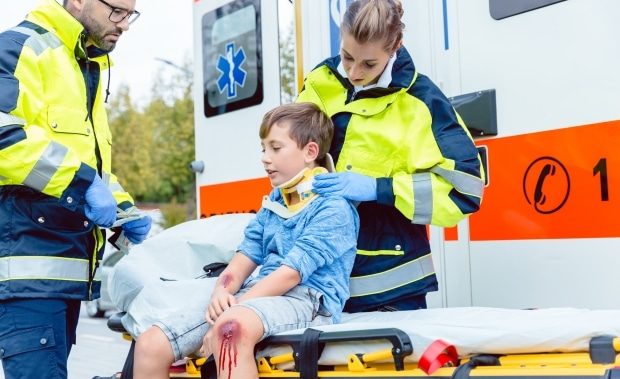What To Look For In Kids After A Car Accident
There ‘s nothing more important to parents than a child’s health and well-being. As
the superheroes in their children’s lives, parents must diligently attune to their safety needs, being aware of and responsive to them.
In particular, parents must pay attention after a car accident, especially to children too young to articulate what they
feel. How do they act?
Are they happy or sad, engaged, interested, capable of listening? Are they in distress or needing to be held?
Head straight to the emergency room should your child appear to pass out or lose consciousness. At times, injuries cannot be seen.
It’s always better to be extra-cautious to assure your child’s health and wellness.
As soon as the car accident occurs, and up to a few weeks after, it’s crucial to watch
for
- vomiting,
- confused speech,
- lethargy,
- blurred or double vision,
- difficulty with balance or walking,
- headaches, and
- pupils that are of unequal sizes or bigger than normal.
Find out whether your child feels nauseous, hears a ringing in the ears or has trouble tasting or smelling.
Paying special attention to these signs of injury can help you determine whether your child needs immediate medical attention.
1. Repeated Vomiting, Nausea or Seizures
If your child has at least one episode of vomiting after an accident, without any other indication he or she is sick, it’s probably due to an injury sustained in the
accident. A low percentage of children have a seizure immediately after a crash.
A CT scan of the head is usually recommended in this situation.
2. Unusual Behavior, Increased Confusion or Agitation
Rapid heartbeat, cool and sweaty skin, low blood pressure, and confusion are all signs
of shock. Your little one may have suffered a traumatic injury requiring the trained
and discerning eye of a medical professional.
If your child loses too much blood, his or her organs will not function correctly. Missing an internal injury could cause your
baby to go into shock.
3. Inconsolable or Crying Excessively
When nothing will sooth them in a three-hour chunk of time, then your baby is telling you something isn’t right. He or she could appear to be physically fine on the outside but could have internal injuries or a head injury.
4. Irritability, Anger or Loss of Interest
A car accident can be frightening to both the child and parents. It’s important to
remember a child might feel and act otherwise than adults.
Every child and every accident is different.
5. Use your Parental Instincts
Parental instincts are a real thing. Trust them and seek medical attention if you feel something is wrong.
You know when something is wrong, and you know when everything is okay. Parental instincts came with your child, so use them.
No one knows your child better than you do.
If there’s anything this article should have imparted to you, it’s that being mindful of the warning signs displayed by your child after an accident will help ensure he or she gets the needed medical attention.
If there’s anything your journey as a parent so far may have taught you, it’s that when hard times are about, your family has the strength
to endure them.
Do you have any other suggestions regarding what we should look for in our child after an car accident? Please don’t keep them to yourself share them in the Comments.






